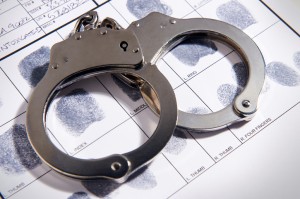If your criminal case is proceeding after your preliminary hearing and arraignment, you can request a jury trial or a bench trial. Any person charged with a crime has the Constitutional right to a jury trial. In Pennsylvania a jury consists of twelve members and two alternates. The two alternates do not participate in the deliberations after the trial and are dismissed at the conclusion of the trial if none of the original twelve are excused. The jury is selected from a group of approximately ninety people during a process known as Voir Dire. During this process, attorneys for both sides attempt to identify any biases or prejudices which may cause a potential juror to be partial toward one particular side. This is done by the attorneys reviewing each person’s information that they provided when they filled in the juror questionnaire and by the Judge and attorneys asking questions of the jury panel. The defense and prosecution each get seven preemptory challenges and with those challenges may excuse a juror without a reason. If either attorney wants to exclude a juror without using a preemptory challenge they may make a motion for cause but the judge is not required to grant the motion.
The prosecutor must call witnesses to testify, present any physical evidence such as photographs, clothing, or results of tests like a breath or blood alcohol test in a DUI case, and argue any legal issues. The defense can cross-examine the state’s witnesses and argue to the court that the prosecutor should not be able to present certain evidence, if appropriate. The defendant also is entitled to call witnesses, present evidence, and testify on his own behalf.
A jury decides all issues of fact which means determining the credibility of witnesses and assigning weight to the evidence presented. Judges, however, decide all issues of law which means the admissibility of evidence and the right to pursue certain lines of questioning. The jury’s verdict must be unanimous and if the jury is unable to reach a verdict a judge can declare a mistrial. A mistrial does not mean that a person necessarily goes free but that the state must go through the entire process again.
A bench trial provides a person with all the same constitutional rights as a jury trial but the major difference is that the finder of fact is one person, the judge. The judge also maintains his authority over all issues of law pertaining to the trial stated above. There are several reasons why a defendant should select a bench trial over a jury trial. The most common reason is that a case involves an issue that requires a substantial understanding of the law and the elements of an offense. For example if a defense strategy focuses on the degree of severity meaning the defendant committed the crime but not the way the prosecutor states he committed the crime, as opposed to a case of mistaken identity. Second, if the case turns on applying a complex legal rule to the facts of the case, juries may have a difficult time with the rule or even ignore it. Third, if information will come out at trial that puts the defendant in a bad light, but which is technically irrelevant to the charge, a judge might be more neutral than a jury. Finally, a bench trial is usually a quicker way to complete a case because it can be scheduled sooner and does not require jury selection and jury instructions, which make the trial process last much longer. If you are charged with a crime call Gregory J. Spadea at 610-521-0604.









Speak Your Mind